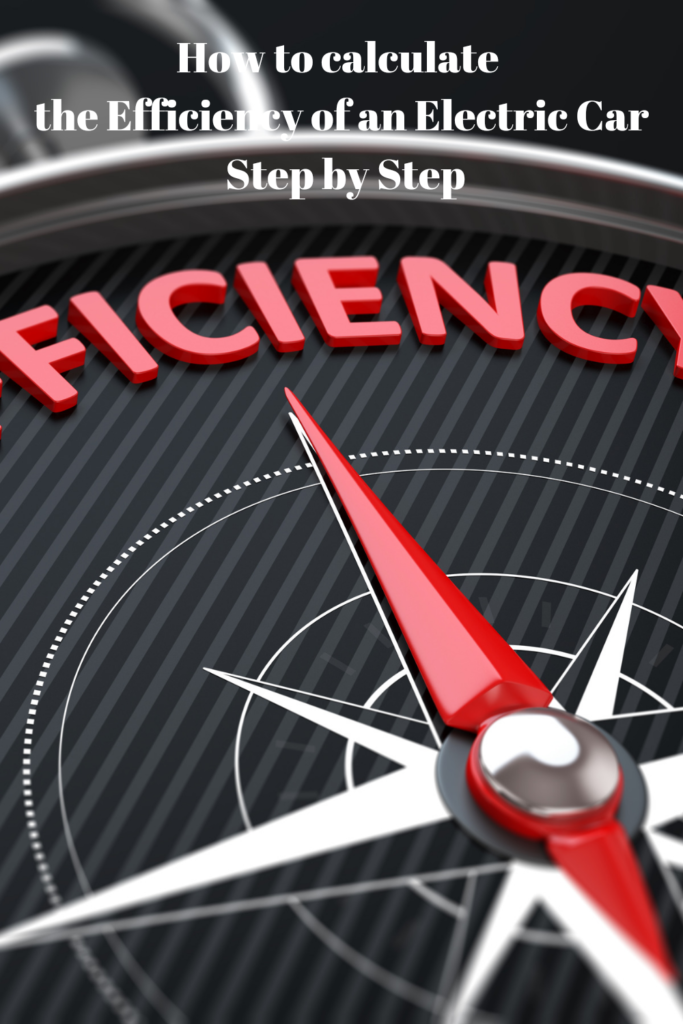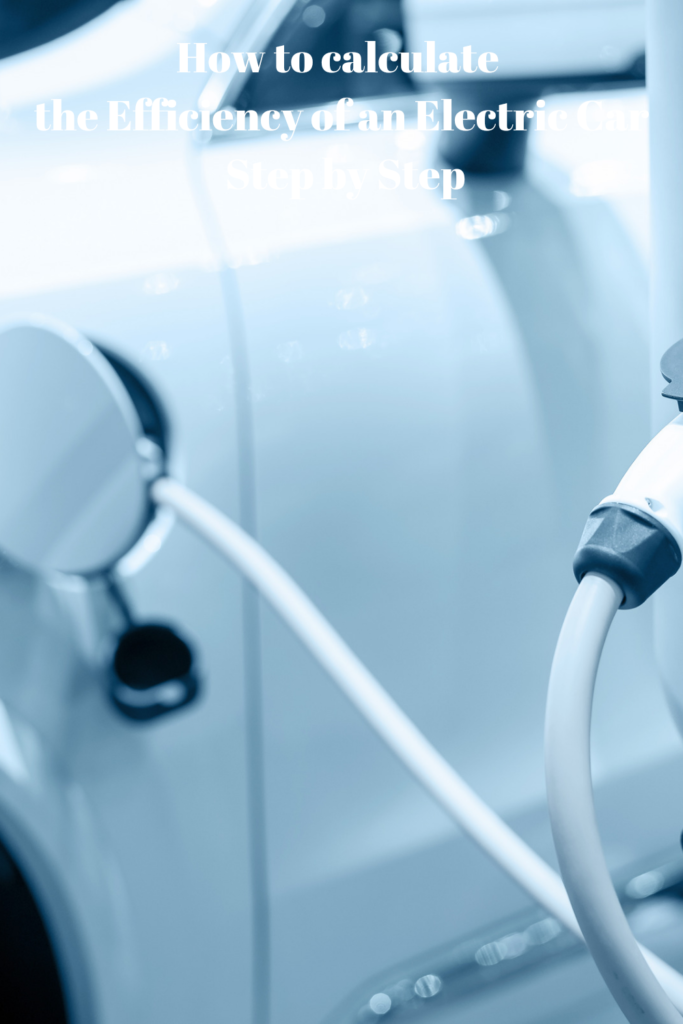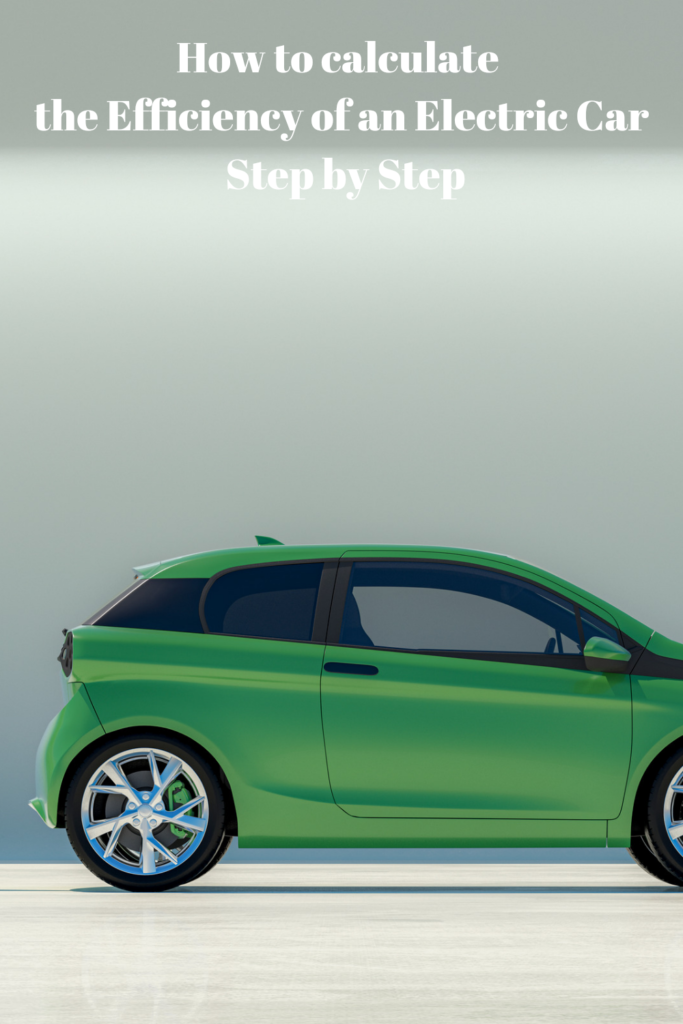How to calculate the efficiency of an electric car
Calculating the efficiency of an electric car is crucial in understanding its environmental impact and cost-effectiveness.
It helps us determine how effectively an electric car converts electrical energy stored in its batteries into useful kinetic energy that propels the vehicle.

In this guide, we will cover the key factors and variables involved in determining electric car efficiency and provide comprehensive examples and calculations to aid understanding.
I. Understanding Efficiency:
Efficiency is a measure of the effectiveness with which energy is converted into useful work.
In the case of electric cars, it refers to how efficiently the electrical energy stored in the batteries is converted into the kinetic energy that powers the vehicle.
Electric car efficiency is typically expressed as a percentage, with higher percentages indicating better efficiency.
II. Key Factors and Variables in Determining Efficiency:
1. Battery Capacity:
Battery capacity is the amount of electrical energy that can be stored in the vehicle’s batteries. It is commonly measured in kilowatt-hours (kWh). Battery capacity is a crucial factor in calculating electric car efficiency since it determines the amount of energy available for use.
2. Energy Consumption (E):
Energy consumption refers to the amount of electrical energy consumed by the vehicle during travel. It is measured in kilowatt-hours per unit distance (kWh/km or kWh/mile).
Distance Traveled (D): Distance traveled is the total distance covered by the electric car during a given span. It is measured in kilometers or miles.
3. Calculating Efficiency:
Electric car efficiency can be calculated using the formula:
Efficiency (%) = (Energy consumed / Battery capacity) * 100
The energy consumed can be found by multiplying the distance traveled by the energy consumption per unit distance:
Energy consumed = Energy consumption * Distance traveled

Therefore, the efficiency equation can be rewritten as:
Efficiency (%) = (Energy consumption * Distance traveled / Battery capacity) * 100
4. Example Calculation:
Let’s assume an electric car with a battery capacity of 40 kWh traveled a distance of 150 kilometers while consuming 20 kWh per kilometer.
Energy consumed = 20 kWh/km * 150 km = 3000 kWh
Efficiency (%) = (3000 kWh / 40 kWh) * 100 = 7500%
In this example, the calculated efficiency is 7500%, indicating an erroneously high value. This suggests a mistake, such as using incorrect energy consumption data or a battery capacity that exceeds the actual value. Double-checking and correcting such errors is essential for accurate efficiency calculations.
5. Significance of Efficiency:
- Environmental Impact: Higher efficiency means less energy is wasted during operation, resulting in reduced greenhouse gas emissions and lower environmental impact. Electric cars with high efficiency contribute to a cleaner atmosphere and combat climate change.
- Cost-effectiveness: Higher efficiency means the electric car can travel more distance using a given amount of energy. This results in lower electricity costs per kilometer or mile traveled, making electric cars more cost-effective compared to their fossil-fueled counterparts.
6. Advancements and Innovations:
Measuring Efficiency: Technological advancements are improving the accuracy and precision of measuring electric car efficiency.
Advanced onboard sensors and software systems provide real-time data on energy consumption, battery performance, and efficiency metrics.
Improving Efficiency: Ongoing research and development aim to enhance electric car efficiency through innovations like regenerative braking, lightweight materials, aerodynamic designs, and improved battery technologies.
These advancements contribute to maximizing the range and minimizing energy consumption.
Conclusion:
Calculating the efficiency of an electric car is an essential step in determining its environmental impact and cost-effectiveness.
It involves factors like battery capacity, energy consumption, and distance traveled.

By following the step-by-step guide and understanding key concepts, you can assess the efficiency of electric cars and make informed decisions while considering your environmental and economic goals.
Continual advancements in measuring and improving efficiency contribute to a sustainable and greener transportation future.
